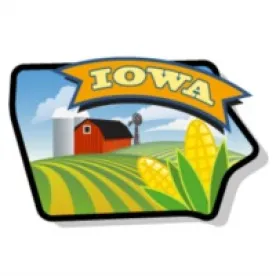On April 6, 2016, Iowa Governor Terry Branstad signed Senate File 2300, creating a five cent tax credit, per pound of renewable chemicals produced from biomass feedstock between 2017 and 2026. Spokesman for Governor, Ben Hammes, stated, "Gov. Branstad believes this biochemical tax program will go even further to continue spurring economic growth all over Iowa, creating more high-quality jobs and attracting investments in renewable chemical manufacturing and advanced bio-refining." The bill passed the Iowa Senate on March 16, 2016, with a vote of 46-3, and the Iowa House on March 28, 2016, with a vote of 95-1.
The tax credit will take effect July 1, 2016, and will be capped at $105 million for each fiscal year through June 30, 2021. After 2021, the general assembly will determine if the tax credit limitation will be continued. The law does not apply to renewable chemicals that are sold to be used as food, feed, or fuel, but does include building-block chemicals, supplements, vitamins, nutraceuticals, and pharmaceuticals as long as there is no caloric value. Biomass-derived ethanol, fatty acid methyl esters, and butanol are eligible for the credit as long as they are produced and sold for uses other than food or fuel.



 />i
/>i
